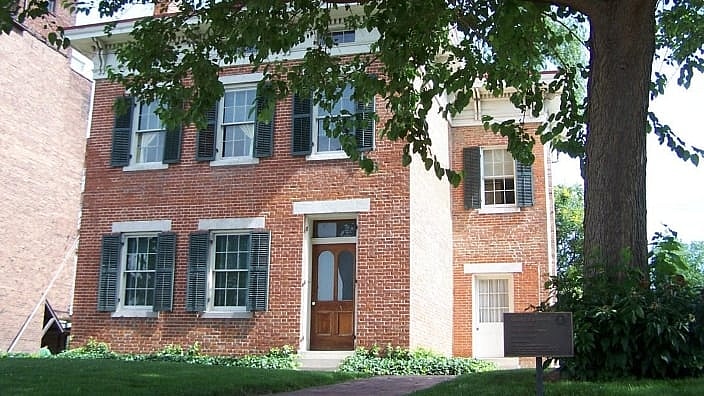A new historic marker is planned for the downtown square in Fayetteville, Arkansas, telling the story of a determined slave from America who escaped to Canada — but was sent back.
As noted in Arkansas Online, Nelson Hackett fled Fayetteville on horseback seeking his freedom in July 1841, riding 360 miles north through a slave state, Missouri, before conquering another 600 miles of free-state terrain and reaching Canada, at the time under British rule.

To set a permanent place to tell his story, The Nelson Hackett Project, an initiative of the University of Arkansas Humanities Center, is working with the Black Heritage Preservation Commission, which was established in Fayetteville late last year. The group’s aim is creating historical markers “recognizing the historical struggles and achievements of Black residents as a way to promote diversity and equality and oppose discrimination,” Arkansas Online reported.
Hackett’s story is fascinating in that once he reached Canada, Alfred Wallace, the man who claimed to own the escaped slave, tracked Hackett down and demanded his arrest and extradition. He accused Hackett of stealing the horse, $500, and other goods in his escape. Archibald Yell, the governor of Arkansas at the time, wrote a letter to Canada’s colonial governor requesting the return of Hackett to the states, and his request was granted.
“He is the first and only enslaved person who Canada sends back to slavery,” University of Arkansas history professor Michael Pierce, who helms The Nelson Hackett Project, told Arkansas Online.
According to research, upon his return to Arkansas, Hackett was beaten publicly, then Wallace sold him into slavery in Texas — which he reportedly again escaped. Now, more than a century later, Fayetteville’s Black Heritage Preservation Commission is deciding whether to place a marker near where Wallace owned a grocery store said to be the site Hackett worked as his personal servant.
“Nelson Hackett set in motion, through his agency, the events that made sure that Canada would remain a safe haven for those who were escaping slavery in the United States,” said Pierce.
He notes that abolitionists protested Hackett’s return to the U.S. and his experience was ultimately a catalyst for laws that stopped extradition from Canada.
The city of Fayetteville plans to apply for a $3,500 state grant to pay for the marker’s creation, and it will likely be a text of Hackett’s life story on an engraved piece of metal set on a pole.
Arkansas Online published the proposed text, which reads, in part: “Nelson Hackett was an enslaved man whose escape to Canada and subsequent extradition set off an international dispute that ensured Canada remained a safe refuge for those escaping bondage from the United States. He labored near this spot as a personal servant to Alfred Wallace.”
It concludes: “Black and white abolitionists throughout the Atlantic world fought to prevent Hackett’s extradition from setting a precedent. They secured a commitment, from the British government, making extradition of those fleeing slavery nearly impossible.”
TheGrio is FREE on your TV via Apple TV, Amazon Fire, Roku and Android TV. Also, please download theGrio mobile apps today!

